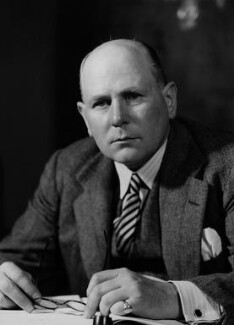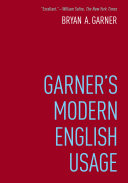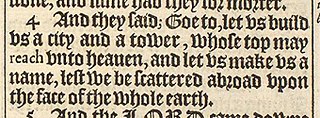Singular they, along with its inflected or derivative forms, them, their, theirs, and themselves, is a gender-neutral third-person pronoun. It typically occurs with an indeterminate antecedent, in sentences such as:
A split infinitive is a grammatical construction in which an adverb or adverbial phrase separates the "to" and "infinitive" constituents of what was traditionally called the "full infinitive", but is more commonly known in modern linguistics as the to-infinitive. In the history of English language aesthetics, the split infinitive was often deprecated, despite its prevalence in colloquial speech. The opening sequence of the Star Trek television series contains a well-known example, "to boldly go where no man has gone before", wherein the adverb boldly was said to split the full infinitive, to go. Multiple words may split a to-infinitive, such as: "The population is expected to more than double in the next ten years."

The Elements of Style is a style guide to writing American English, published in numerous editions. The original was written by William Strunk Jr. in 1918, and published by Harcourt in 1920, comprising eight "elementary rules of usage," ten "elementary principles of composition," "a few matters of form," a list of 49 "words and expressions commonly misused," and a list of 57 "words often misspelled." Writer and editor E. B. White greatly enlarged and revised the book for publication by Macmillan in 1959. That was the first edition of the so-called Strunk & White, which Time recognized in 2011 as one of the 100 best and most influential books written in English since 1923.

The Complete Plain Words, titled simply Plain Words in its 2014 revision, is a style guide written by Sir Ernest Gowers, published in 1954. It has never been out of print. It comprises expanded and revised versions of two pamphlets that he wrote at the request of HM Treasury, Plain Words (1948) and ABC of Plain Words (1951). The aim of the book is to help officials in their use of English as a tool of their trade. To keep the work relevant for readers in subsequent decades it has been revised by Sir Bruce Fraser in 1973, by Sidney Greenbaum and Janet Whitcut in 1986, and by the original author's great-granddaughter Rebecca Gowers in 2014.

A Dictionary of Modern English Usage (1926), by Henry Watson Fowler (1858–1933), is a style guide to British English usage, pronunciation, and writing. Covering topics such as plurals and literary technique, distinctions among like words, and the use of foreign terms, the dictionary became the standard for other style guides to writing in English. Hence, the 1926 first edition remains in print, along with the 1965 second edition, edited by Ernest Gowers, which was reprinted in 1983 and 1987. The 1996 third edition was re-titled as The New Fowler's Modern English Usage, and revised in 2004, was mostly rewritten by Robert W. Burchfield, as a usage dictionary that incorporated corpus linguistics data; and the 2015 fourth edition, revised and re-titled Fowler's Dictionary of Modern English Usage, was edited by Jeremy Butterfield, as a usage dictionary. Informally, readers refer to the style guide and dictionary as Fowler's Modern English Usage, Fowler, and Fowler's.
Elegant variation is the use of synonyms to avoid repetition or add variety. The term was introduced in 1906 by H. W. Fowler and F. G. Fowler in The King's English. In their meaning of the term, they focus particularly on instances when the word being avoided is a noun or its pronoun. Pronouns are themselves variations intended to avoid awkward repetition, and variations are so often necessary, that they should be used only when needed. The Fowlers recommend that "variations should take place only when there is some awkwardness, such as ambiguity or noticeable monotony, in the word avoided".
Henry Watson Fowler was an English schoolmaster, lexicographer and commentator on the usage of the English language. He is notable for both A Dictionary of Modern English Usage and his work on the Concise Oxford Dictionary, and was described by The Times as "a lexicographical genius".

Jacques Martin Barzun was a French-born American historian known for his studies of the history of ideas and cultural history. He wrote about a wide range of subjects, including baseball, mystery novels, and classical music, and was also known as a philosopher of education. In the book Teacher in America (1945), Barzun influenced the training of schoolteachers in the United States.
An English writing style is a combination of features in an English language composition that has become characteristic of a particular writer, a genre, a particular organization, or a profession more broadly.
In English-language punctuation, the serial comma, also referred to as the series comma, Oxford comma, or Harvard comma, is a comma placed immediately after the penultimate term and before the coordinating conjunction in a series of three or more terms. For instance, a list of three countries might be punctuated without the serial comma as "France, Italy and Spain" or with the serial comma as "France, Italy, and Spain". The serial comma can serve to avoid ambiguity in specific contexts, though its employment may also generate ambiguity under certain circumstances.
In written English usage, a comma splice or comma fault is the use of a comma to join two independent clauses. For example:
It is nearly half past five, we cannot reach town before dark.
The Latin adverb sic inserted after a quoted word or passage indicates that the quoted matter has been transcribed or translated exactly as found in the source text, complete with any erroneous, archaic, or otherwise nonstandard spelling, punctuation, or grammar. It also applies to any surprising assertion, faulty reasoning, or other matter that might be interpreted as an error of transcription.

James Evershed Agate was an English diarist and theatre critic between the two world wars. He took up journalism in his late twenties and was on the staff of The Manchester Guardian in 1907–1914. He later became a drama critic for The Saturday Review (1921–1923), The Sunday Times (1923–1947) and the BBC (1925–1932). The nine volumes of Agate's diaries and letters cover the British theatre of his time and non-theatrical interests such as sports, social gossip and private preoccupations with health and finances. He published three novels, translated a play briefly staged in London, and regularly published collections of theatre essays and reviews.

John Carey, is a British literary critic, and post-retirement (2002) emeritus Merton Professor of English Literature at the University of Oxford. He is known for his anti-elitist views on high culture, as expounded in several books. He has twice chaired the Booker Prize committee, in 1982 and 2003, and chaired the judging panel for the first Man Booker International Prize in 2005.
Jack Sullivan is an American literary scholar, professor, essayist, author, editor, musicologist, concert annotator, and short story writer. He is a scholar of the horror genre, Alfred Hitchcock, and the impact of American culture on European music.
Prescription is the formulation of normative rules for language use. This article discusses the history of prescription in English. For a more general discussion, see linguistic prescription.

A Catalogue of Crime is a critique of crime fiction by Jacques Barzun and Wendell Hertig Taylor, first published in 1971. The book was awarded a Special Edgar Award from the Mystery Writers of America in 1972. A revised and enlarged edition was published in 1989. Barzun and Taylor both graduated in the class of 1924 from Harrisburg Technical High School.

Garner's Modern English Usage (GMEU), written by Bryan A. Garner and published by Oxford University Press, is a usage dictionary and style guide for contemporary Modern English. It was first published in 1998 as A Dictionary of Modern American Usage, with a focus on American English, which it retained for the next two editions as Garner's Modern American Usage (GMAU). It was expanded to cover English more broadly in the 2016 fourth edition, under the present title. The work covers issues of usage, pronunciation, and style, from distinctions among commonly confused words and phrases to notes on how to prevent verbosity and obscurity. In addition, it contains essays about the English language. An abridged version of the first edition was also published as The Oxford Dictionary of American Usage and Style in 2000 and a similar version was published in The Chicago Manual of Style 16th edition in 2017. The latter includes three sections titled "Grammar", "Syntax" and "Word Usage", each with several subcategories.
Roy Wilson Follett was an American writer known for writing the draft form of what became Follett's Modern American Usage, which was unfinished at his death and was completed and edited by his friend Jacques Barzun and published posthumously.

The inanimate whose refers to the use in English of the relative pronoun whose with non-personal antecedents, as in: "That's the car whose alarm keeps waking us up at night." The construction is also known as the whose inanimate, non-personal whose, and neuter whose.









